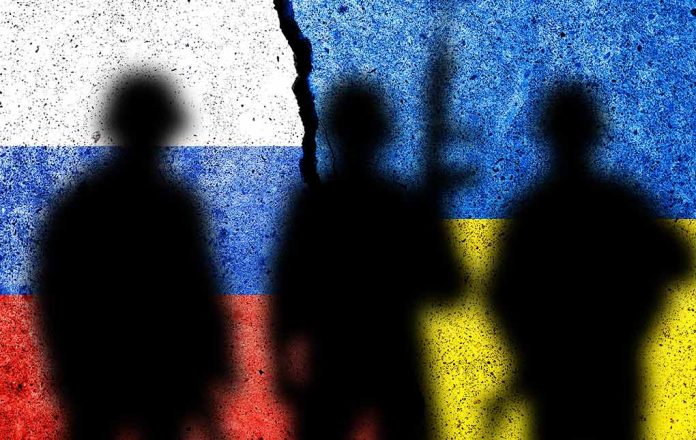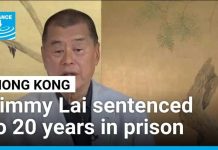
President Putin abruptly dismisses Army General Oleg Salyukov, his chief of land forces since 2014, signaling another sweeping shake-up in Russia’s military leadership as the Ukraine conflict enters its fourth year.
Key Takeaways
- President Vladimir Putin removed General Oleg Salyukov from his position as Russia’s chief of land forces without providing specific reasons
- Salyukov, 70, has been reassigned as a deputy to former Defense Minister Sergei Shoigu, effectively a demotion
- This dismissal occurs amid ongoing military leadership changes following Russia’s slower-than-expected progress in Ukraine
- The shake-up follows Salyukov’s appearance at the Victory Day military parade, suggesting the timing was deliberately planned
- Russia has charged numerous military officials with corruption while denying these personnel changes constitute a purge
Another Military Leadership Overhaul
In a significant development that has caught military observers by surprise, Russian President Vladimir Putin has dismissed Army General Oleg Salyukov from his position as commander of Russia’s ground forces. The announcement came via a Kremlin decree shortly after Salyukov supervised the traditional Victory Day celebrations in Moscow’s Red Square. The 70-year-old general, who had led Russia’s land forces since 2014, has been reassigned to serve as a deputy to former Defense Minister Sergei Shoigu in what appears to be a clear demotion.
The timing of this dismissal is particularly noteworthy as it came just days after Salyukov participated in the Victory Day military parade, an event of enormous symbolic importance in Russia. This suggests the decision was calculated, allowing the general to complete his ceremonial duties before being removed from his command position. The Kremlin has maintained its characteristic silence regarding the specific reasons behind this dismissal, fueling speculation about internal dissatisfaction with military performance in Ukraine Stated President Vladimir Putin
Ongoing Pattern of Military Restructuring
Salyukov’s removal is not an isolated incident but part of a broader pattern of leadership changes within Russia’s defense establishment. Since the start of the Ukraine conflict, Putin has repeatedly reshuffled his military leadership, seemingly searching for commanders who can deliver the decisive victory that has eluded Russian forces for over three years. Last year saw the downgrading of Sergei Shoigu, Putin’s longtime ally who had held top positions since the 1990s, indicating no one is immune to these sweeping changes.
Russian law enforcement has charged more than a dozen military and defense officials with corruption since last year, creating a climate of uncertainty within the military’s upper echelons. Despite these widespread personnel changes, the Kremlin continues to deny that these dismissals and arrests constitute a purge following military setbacks in Ukraine. The constant reshuffling has created what analysts describe as bureaucratic disorganization and increasing political risk due to growing dissatisfaction among military generals Stated Kremlin
Strategic Implications for the Ukraine Conflict
Russia has been making slow but steady battlefield gains in eastern Ukraine, particularly near the strategic city of Pokrovsk with recent territorial captures in the Donetsk region. However, the pace of these advances has fallen well short of the Kremlin’s initial expectations for what was supposed to be a swift military operation. The protracted nature of the conflict has resulted in significant casualties and resource expenditure that Russia had not anticipated when launching its invasion in 2022.
Some military analysts suggest Putin may be seeking greater battlefield breakthroughs as peace negotiations mediated by the United States begin to show progress. Ukraine and Russia are reportedly set to hold their first direct peace talks in over three years in Istanbul, potentially marking a turning point in the conflict. This diplomatic development makes the timing of Salyukov’s dismissal all the more significant, potentially indicating Putin’s desire to strengthen his negotiating position through military gains.
Leadership Style Raising Concerns
Critics of Putin’s military management point to a troubling pattern in his leadership appointments. Many analysts suggest the Russian president consistently prioritizes personal loyalty over professional competence, leading to a disorganized command structure that undermines military effectiveness. The lack of meaningful changes in the General Staff has reportedly hindered Russia’s ability to learn from battlefield experiences and weakened the authority of high command structures in the field.
The constant rotation of military leaders creates significant challenges for operational continuity and strategic planning. With each leadership change, new commanders must familiarize themselves with ongoing operations and establish working relationships with subordinates, creating inefficiencies that can impact battlefield performance. As Russia enters the fourth year of what was initially intended to be a brief military operation, these leadership instabilities represent a significant vulnerability in Putin’s war effort Stated Salyukov



